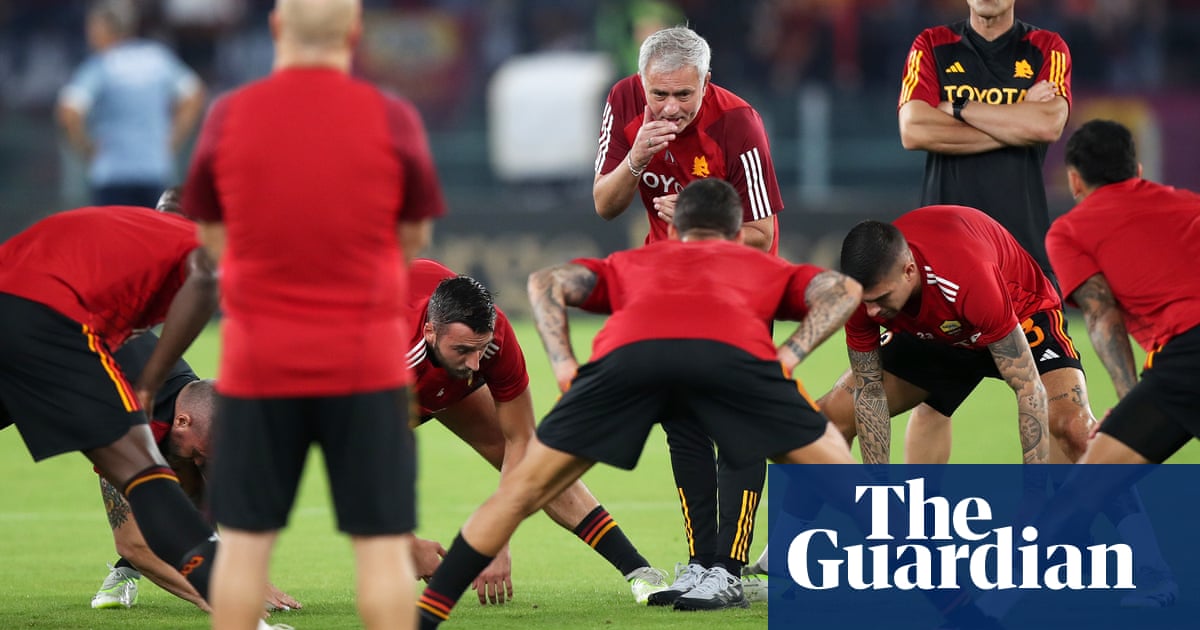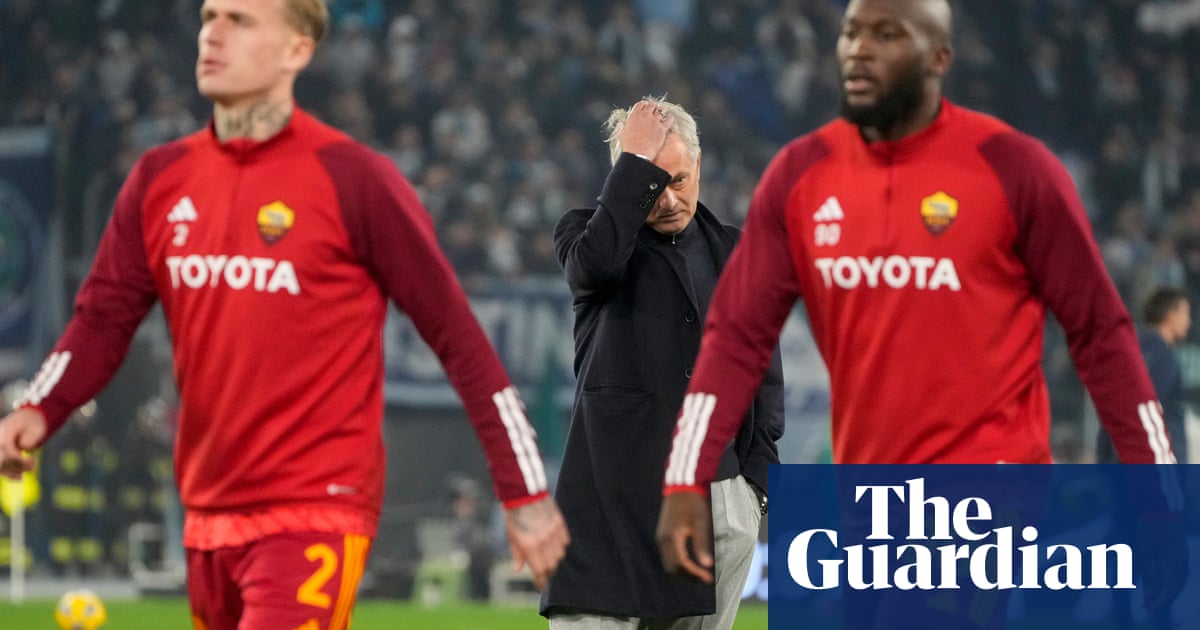
Nobody could mistrust a 3-0 lead more than the Milan supporters who saw their team throw that scoreline away in the 2005 Champions League final. The scars of defeat to Liverpool never fully healed, not even after their team took revenge two years later. Fans self-diagnosed with “Istanbul Syndrome” to explain the foreboding they felt whenever their team found itself in a winning position thereafter.
Fresh outbreaks were reported in the days leading up to Milan’s season-ending game away to Sassuolo. The Rossoneri needed just a point against mid-table opponents to seal their first Serie A title for 11 years. It all looked too easy, and therefore too much like a disaster waiting to happen.
But Reggio Emilia is no Istanbul. If anything, it felt more like these teams were playing in Milan. The Stadio Mapei’s north stand had been transformed into a miniature version of San Siro’s Curva Sud, visiting fans putting together a pre-game choreography to remind their team that: “We are always with you.” Although red-and-black stripes were prohibited in other parts of the ground, it was clear more sections had been colonised.
There were reports that as many as 100,000 people had been waiting in the online queue when tickets went on sale. Scenes of supporters taking over the Milano Centrale train station before embarking on the 100-mile journey south had been going viral.
If any of them were suffering with Istanbul Syndrome, they did not infect the players. Milan were in control from kick-off, any nerves lasting only as long as it took for Olivier Giroud to open the scoring with a nutmeg of Andrea Consigli after a quarter of an hour. It was the Frenchman again who grabbed the next goal before Franck Kessié made it 3-0 within the first 36 minutes.
There was no danger here of a comeback, no chance of history repeating. This is a different team in a different time, a side born from the actual pandemic that arrived in Europe two years ago.
Milan were seventh in Serie A on the day when Italian football was suspended in response to the first Covid-19 outbreak. They had just lost at home to Genoa and Stefano Pioli, the manager hired six months earlier to replace a struggling Marco Giampaolo, was not expected to last beyond the end of the campaign. Behind the scenes, Ralf Rangnick was being lined up to succeed him.
But Pioli made himself unsackable when play resumed in the summer, leading Milan on a run of nine wins and three draws. He has cited a 5-0 defeat to Atalanta in December 2019 as the turning point, leading to conversations with the club’s directors who went out and signed Zlatan Ibrahimovic and Simon Kjær. Yet his own continued involvement would not be confirmed for another seven months.
What a pivotal decision it was by Milan to stick with him. Finishing second last season was already a major achievement – Pioli restoring Milan to the Champions League for the first time in seven years. He has kept the club moving forward with a blend of expert man-management and timely tactical tinkering, adjusting his formations to exploit the development of individual players along the way.
His first Milan team was designed to liberate Theo Hernández, the standout talent he saw in the squad he inherited in 2019, giving the full-back freedom to roam and create. Since then, there have been ongoing evolutions: adapting the attack with the arrivals of Ibrahimovic and then Giroud and the midfield in response to Hakan Calhanoglu’s departure and the rise of Sandro Tonali.
This season’s greatest tactical triumph might have been moving Pierre Kalulu, previously a full-back, inside to play in the centre of defence after Kjær was injured in January. But Pioli’s real triumph has been to help young players continue in their individual development, helping Fikayo Tomori to be more patient at the back and Rafael Leão more ruthless up front.
For both of Pioli’s first two seasons, Milan had the youngest team in all of Serie A. Even now it is still, according to Opta, the youngest to win Italy’s top division since it went to three points for a win in 1994.
The presence of a handful of veteran leaders in the squad has been essential. Ibrahimovic barely played in the second half of this season, struggling with a persistent knee injury, but described this as “the most satisfying” of all the trophies he has won, since he had been able to contribute to in other ways, serving as a “pilot” guiding young players on to the right flight path.
Giroud may be less vocal but his contributions on the pitch have been essential. His two goals on Sunday allowed him to finally break the ‘curse’ of Milan’s No 9 shirt, becoming the first player to reach double figures while wearing it since Pippo Inzaghi in 2009. As the saying goes in Italy, though, “you don’t count goals, you weigh them”. The Frenchman’s habit for showing up at the most important moments has been crucial. His goals this season had turned around a derby against Inter in January, sunk Napoli in March, and set Milan on the way to reversing a 1-0 deficit against Lazio in April.
In a title race decided by two points, those strikes have made all the difference. But then again, so have Leão’s 11 goals and eight assists, Junior Messias’s contributions from the bench and Mike Maignan’s outstanding saves. Even on Sunday, the Frenchman did make one astonishing reflex stop from a Davide Frattesi header.
This has been a triumph of the collective for Milan – extending beyond even the players or the coaching staff. This title-winning side could not have come together without the shrewd recruitment decisions made by Paolo Maldini and Ricky Massara. They have built a title-winning squad with only the fourth-biggest wage bill in the league, knowing when to make the difficult decisions and not overreach to keep hold of Gianluigi Donnarumma or Calhanoglu. Maldini’s name alone has been an asset. Would Tomori or Hernández have joined without that added appeal of getting to work with a man described by the Englishman as “the best defender of all-time”?
Milan were not supposed to win the title this season, not officially at least. Pioli reminded reporters that nobody had his team as favourites to start this campaign. Yet they have been deserving winners – showing extraordinary consistency in a topsy-turvy season in which both Inter and Napoli blew opportunities.
Pioli’s team end this season on a 16-game unbeaten run, racking up 12 clean sheets since the start of 2022. “We were more consistent than Inter, this was a deserved Scudetto because we believed more,” he said, referencing his strong working relationship with Maldini and Massara as he confessed their conversations had always been more bullish than they let on in public. “Among ourselves, we always talked about the Scudetto.”
Back in January, he told the Guardian his mother continued to admonish him every year for failing to win a major piece of silverware. This summer, just like those Milan fans who fretted about Istanbul Syndrome, he can take every delight in changing the conversation.












